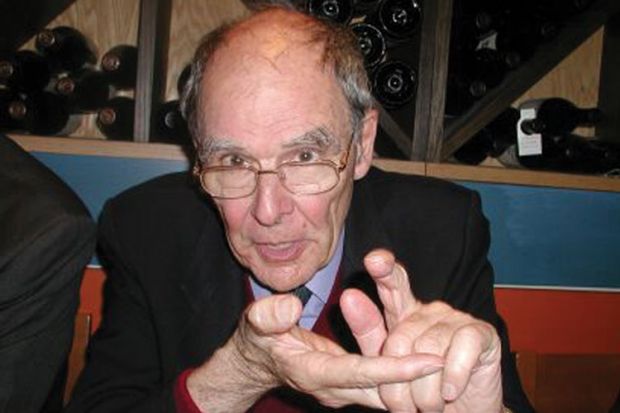David Armstrong was born in Melbourne on 8 July 1926. He attended the Dragon School in Oxford in the UK and then the Geelong Grammar School in Victoria, Australia, before serving in the Royal Australian Navy (1945-46) and taking his first degree at the University of Sydney (1947-50). Although he would later spend the bulk of his career at Sydney, he went to the University of Oxford for his BPhil (1952-54) and secured his first teaching job as assistant lecturer at what was then Birkbeck College, University of London (1954-55).
In 1956, however, Professor Armstrong returned to Australia as lecturer and then senior lecturer at the University of Melbourne (1956-63), where he was also awarded a PhD. From there he moved back to Sydney as Challis professor of philosophy (1964-91), becoming emeritus upon retirement. A conservative by temperament, he became embroiled in a fierce dispute that eventually saw a split between a department for traditional and modern philosophy and a more radical department for general philosophy.
When he started studying the subject, Professor Armstrong once told an interviewer, philosophy in the English-speaking world “had taken a very strange turn, one might say an unphilosophical turn. It had turned to small matters. In particular, it had turned towards language. You didn’t talk about Xs, you talked about talk about Xs.” Yet soon the influence of the philosopher John Anderson encouraged him to turn to bigger themes and to adopt as his “unofficial slogan…‘Put semantics last’. Do not look at what we say about things, but look at the things themselves.”
This soon led Professor Armstrong to “issues [that] seem to be among the most important theoretical and practical questions that one can raise: ‘Is the mind purely physical?’, ‘Are values objective or subjective?’ and so on. Some of us are drawn, perhaps like moths to a flame, to discuss such matters in an argumentative fashion. It is one of the ‘great games’ of the human mind.”
In attempting to answer such questions, Professor Armstrong developed a fully fledged system of metaphysics that made him the key figure in an informal group known as the “Australian materialists”. His major works include A Materialist Theory of Mind (1968), the two-volume Universals and Scientific Realism (1978) and What is a Law of Nature? (1983).
Professor Armstrong died after a long illness on 13 May and is survived by his second wife, Jennifer Mary de Bohun Clark, and his stepchildren.
Register to continue
Why register?
- Registration is free and only takes a moment
- Once registered, you can read 3 articles a month
- Sign up for our newsletter
Subscribe
Or subscribe for unlimited access to:
- Unlimited access to news, views, insights & reviews
- Digital editions
- Digital access to THE’s university and college rankings analysis
Already registered or a current subscriber? Login

